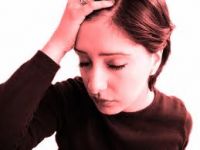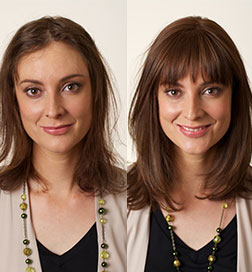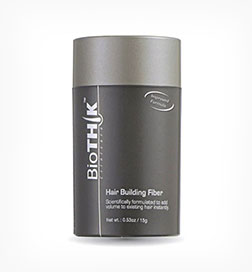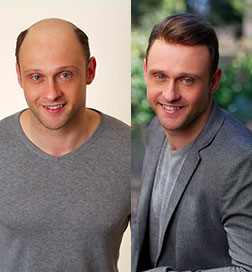It is a common belief that stress can cause hair loss – but how true is it really? We take a look at human physiology to find out.
When investigating the roots of stress-related hair loss, it all comes down to the connection between health, hormones and hair. When we are under constant pressure from competing demands of work, family and relationships, we get more than a little frazzled. Cortisol, a hormone that motivates the body to carry out short term-goals, goes into overdrive. This chemical turns fats and proteins into accessible energy and raises the heart rate. That’s great for momentary situations, supporting us as we deal with a dangerous situation or threat. However, when we are constantly under stress, cortisol stays in the bloodstream for prolonged periods of time, which can have negative effects on overall health.
In the human body, cortisol has a delicate relationship with other hormones like testosterone and adrenalin. When we have an overload of cortisol in our bodies, this also increases levels of adrenalin and testosterone – particularly dihydrotestosterone (DHT). The interplay of these hormones in turn depletes collagen, insulin and bone density. Often, hair loss is another effect of this interaction.
An overstressed body will eventually develop adrenal fatigue – a condition that can leave you feeling depressed, frazzled, anxious and weak. Adrenal fatigue is often worse in men than women due to naturally higher levels of DHT in males. Having abnormally high levels of DHT directly effects the hair, causing follicles to slow down hair production and even die altogether. Thus, stress can ultimately result in hair loss, a common condition for men. Lesser known is the fact that this can also occur in women. The bad news is that once the hair growth cycle starts to slow down, there has been little evidence that the process can be dramatically reversed. Prevention is, as usual, much better than cure.
Preventing stress related hair loss
So, how can we prevent stress-related hair loss from starting in the first place? The good news is that you can do something about this problem. However, there aren’t any quick fixes. Ultimately, it comes down to caring for yourself. This means taking the time and effort to attend to your sleep (eight hours a night is ideal), eating (three balanced meals a day, and plenty of water) and exercise (thirty minutes a day, at least). It is also worth getting clued up about the vitamins and minerals that are excellent for overall health, and can improve hair quality. Minerals like zinc, essential fatty oils and silica are found in nuts, egg yolks, oysters and wheatgerm.
Of course, it is essential to make the time to de-stress and relax, as well as keeping the demands on your time and mental energy under control. Be kind to yourself, and your hair will thank you!
As mentioned above, stress-related hair loss can be tricky to treat once it is already developed. However, you are not powerless to have a full head of hair back again! There are a range of great options available to you to treat hair loss. Book here to see a professional hair loss consultant now – it is free and completely confidential. Alternately, give us a call on 1300 427 778 to discuss your options.




